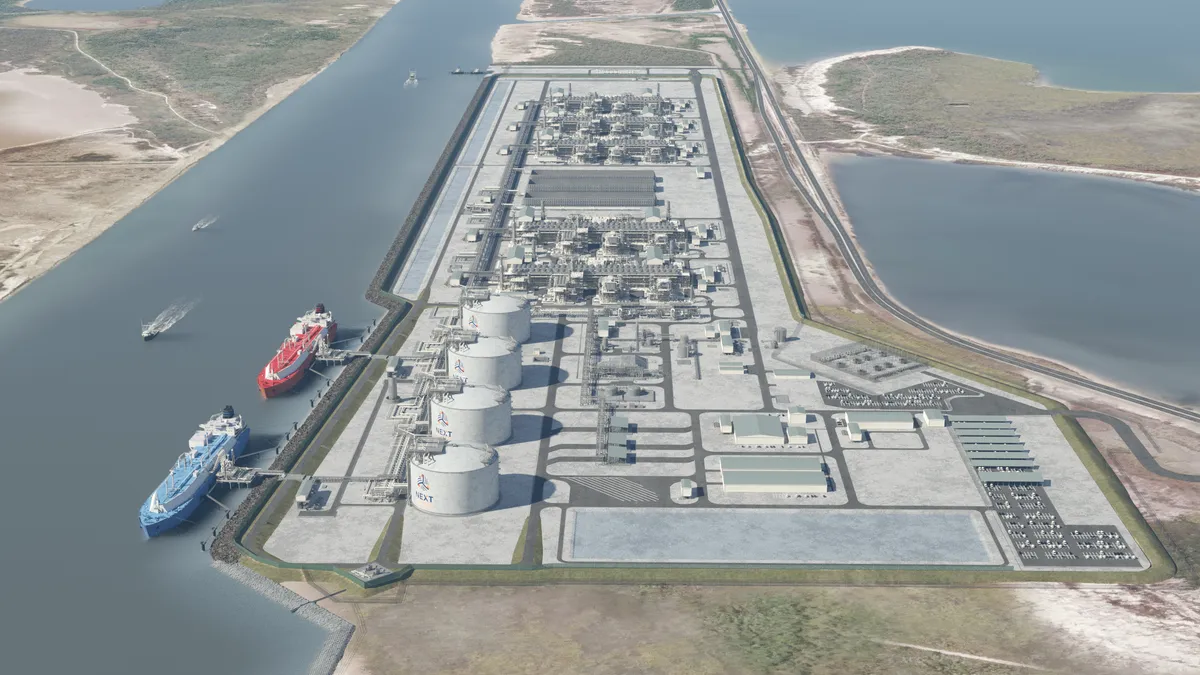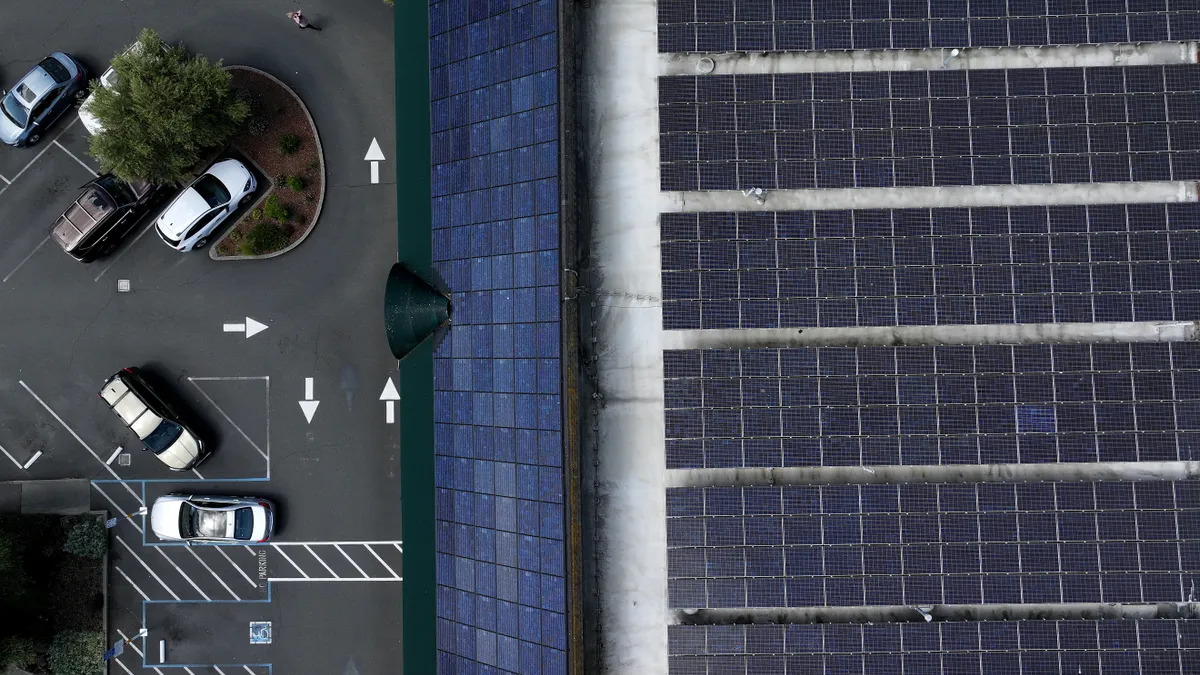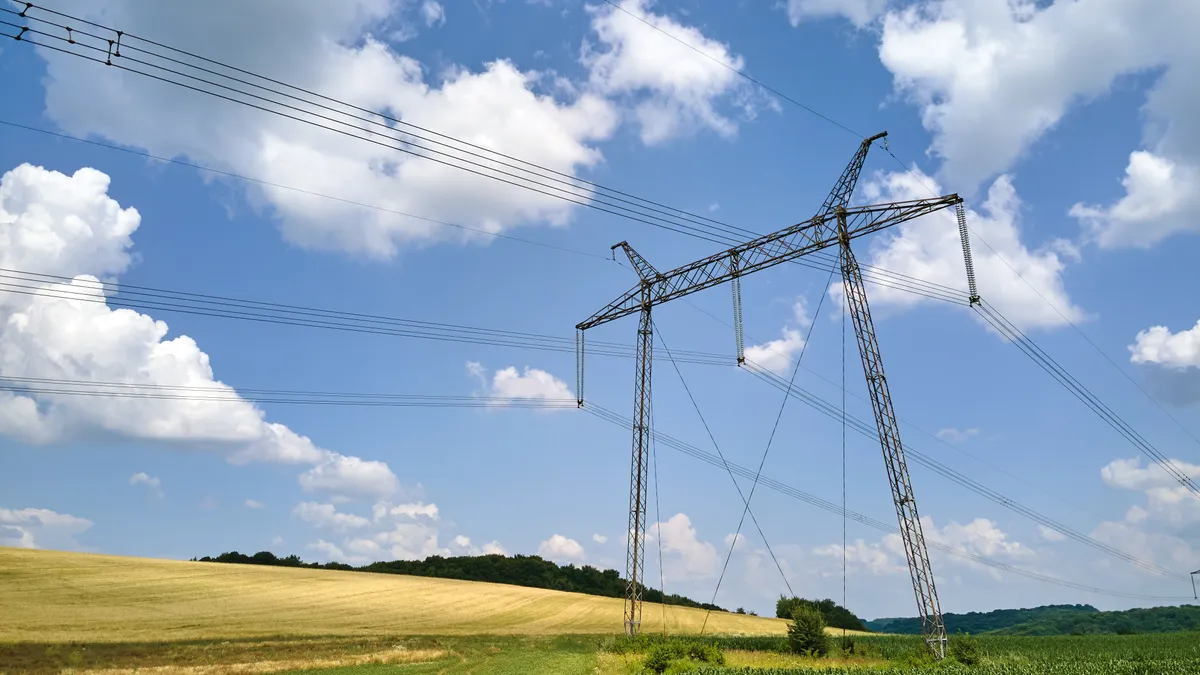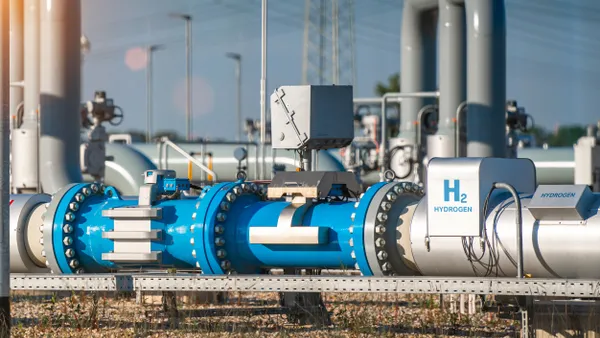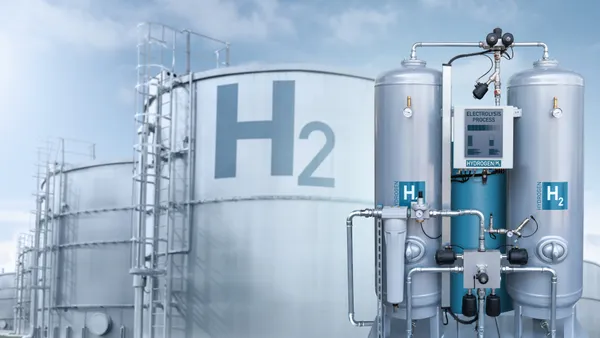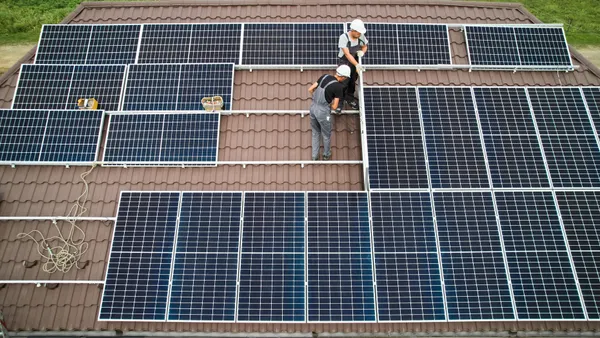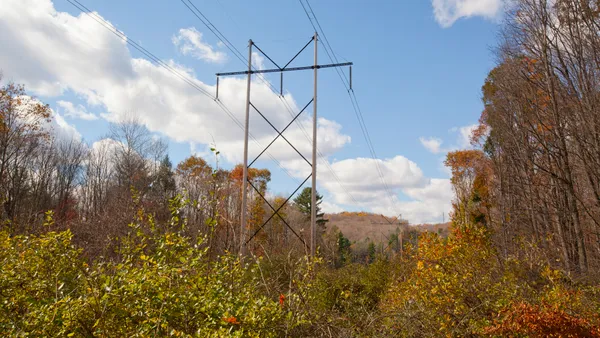Dive Brief:
-
Liquefied natural gas export projects being developed in Texas by NextDecade and Glenfarne Energy Transition could be delayed by a Tuesday decision from the U.S. Court of Appeals for the District of Columbia Circuit, according to ClearView Energy Partners.
-
The appeals court vacated the Federal Energy Regulatory Commission’s reapproval of the projects, as well as a gas pipeline. FERC erred when it reapproved the projects in April 2023 by not issuing supplemental environmental impact statements addressing updated assessments of how the projects would affect environmental justice communities and by not properly considering a proposed carbon capture and sequestration system for one of the terminals, the court ruled.
-
“The court said that FERC must look at impacts on these communities and also ensure that they have a full and meaningful opportunity to participate in the process,” said Nathan Matthews, a Sierra Club senior attorney who argued the case for the petitioners. “This is the third time in a month that the D.C. Circuit has held that FERC failed to exercise oversight over gas infrastructure, suggesting that the days of FERC acting as a rubber stamp could soon be over.”
Dive Insight:
The appeals court’s decision marks the second time in a week it has taken the unusual step of vacating a FERC natural gas decision. The court on July 30 nixed FERC’s approval of a roughly $950 million Williams gas pipeline project.
“We appreciate the significant disruption vacatur may cause the projects,” the court said in its latest decision. “But that does not outweigh the seriousness of the commission’s procedural defects.”
In 2021, the court found FERC’s original decision approving NextDecade’s Rio Grande LNG and Rio Bravo pipeline projects and Glenfarne’s Texas LNG project were flawed and remanded the decisions to the agency.
When FERC revised its decisions, it bolstered its environmental justice analysis as ordered by the court. However, the agency declined to issue supplemental EISs for its updated assessments — a move that caused former FERC Commissioner Allison Clements to dissent from the decisions.
The Sierra Club, the city of Port Isabel, Texas, the Carrizo/Comecrudo Tribe of Texas and Vecinos para el Bienestar de la Comunidad Costera sued FERC over its decision to reapprove the projects.
The court agreed with the petitioners that FERC’s updated environmental justice analysis included “entirely new and significantly expanded” information and reached new conclusions than the initial analysis, which requires that the agency issue a supplemental EIS. The failure to issue the supplemental EIS prevented the public from commenting on the new information, according to the three-judge panel.
Also, after the court remanded FERC’s initial decision back to the agency, NextDecade proposed adding a CCS system to its LNG terminal that it said could capture at least 90% of the facility’s carbon emissions. FERC should have considered the company’s CCS proposal as part of the terminal's environmental review, the court said. Even if Rio Grande decides that it doesn’t want to proceed with the CCS proposal, FERC must analyze it as an alternative to the original proposal via a supplemental EIS before reauthorizing the Rio Grande terminal, the court said.
Also, the court said it was arbitrary and capricious when FERC relied on Rio Grande’s air pollution analysis, which was based on an air monitor that was farther away from the projects than another one. The closer monitor showed that levels of fine particulate matter may exceed federal standards, according to the petitioners, the court said.
The court’s ruling likely delays Rio Grande’s construction schedule and Texas LNG’s “final investment decision” it planned to make later this year because the projects’ certificates could be invalid in six weeks if parties do not ask the panel or the full court to reconsider the decision, and construction cannot occur without them, ClearView said in a note Wednesday. The length of any delays depends on how long it takes FERC to develop a supplemental EIS — a process that typically takes at least six months — and how any further appeals play out, the research firm said.
NextDecade is building three liquefaction units, referred to as trains, at its Rio Grande project for about $18.4 billion. On Monday, NextDecade signed a lump sum turnkey engineering, procurement and construction contract with Bechtel Energy for a roughly $6.1 billion fourth train.
NextDecade is reviewing the court’s decision and assessing its options, the Houston-based company said Tuesday. It is continuing to build the project's first three liquefaction trains and is evaluating how the decision could affect the timing of a final investment decision on Train 4, NextDecade said.
Texas LNG is studying the court’s opinion, “which is a procedural decision to correct a technical deficiency,” a company spokesman said in an email. “We have full confidence FERC will address this matter judiciously and efficiently.”
Texas LNG aims to resolve the issue “quickly and completely” to continue moving toward a “financial investment decision” and construction in the near term, the spokesman said.



